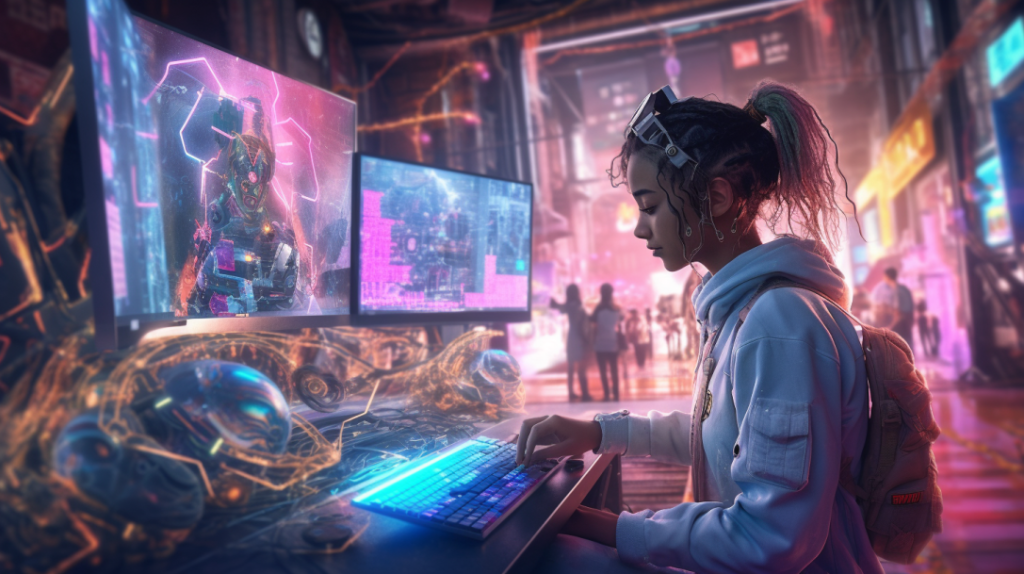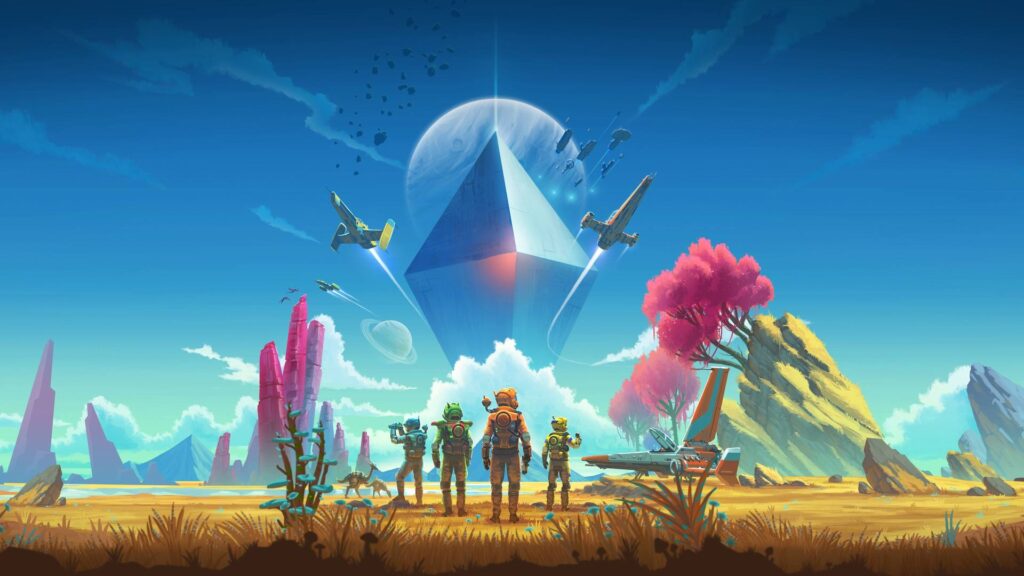AI Transforming Gaming: Exploring from NPCs to Innovative Designs
Games have always been fertile ground for AI, serving as a testing ground for various attempts and breakthroughs in the AI field.Julian Togelius, associate professor at New York University, once said, "Games are the past, present, and future of AI."
With the integration of artificial intelligence (AI) technology, the gaming industry has undergone tremendous changes. Artificial intelligence has completely transformed the way games are developed, played, and experienced. From enhancing gameplay to influencing game design and storytelling, artificial intelligence has become an indispensable part of the gaming ecosystem. Let's explore the impact of artificial intelligence on video games and delve into its role in transforming various aspects of the gaming industry.

Understanding Artificial Intelligence in Games
Artificial intelligence has profoundly transformed the gaming industry, revolutionizing the way games are developed, played, and experienced.AI enables computer-controlled entities to exhibit behaviors and decision-making abilities similar to humans. In games, these entities are known as Non-Player Characters (NPCs), which interact with players, adapt to their actions, and contribute to the overall gaming experience. AI technology allows NPCs to learn, reason, and make decisions based on the game environment and objectives.
Multiple games have successfully applied artificial intelligence technology, changing players' gaming experiences.
Games like "The Last of Us Part II" and "Horizon Zero Dawn" have received widespread acclaim for their AI-driven NPCs, realistic environments, and immersive storytelling. These games showcase the potential of artificial intelligence in creating captivating and memorable gaming experiences.

At CES 2024, NVIDIA showcased its latest achievement using the Avatar Cloud Engine (ACE) technology, where characters in games come to life, engaging in conversations and interactions with other characters and even real players. Utilizing the ACE technology, NPCs (Non-Player Characters) in the game now engage in dynamic conversations, breaking free from scripted dialogue every time a player enters the game.

The interactive dialogue interactions between players and NPCs generated using ACE technology, Image source: NVIDIA
Other tech giants have also been active in this space. Towards the end of 2023, Microsoft Xbox announced a partnership with Inworld AI to inject more interactivity and vitality into NPCs in games using AI technology, thereby enhancing the immersion and experience of the games. In Microsoft's just-released fiscal second quarter of 2024 (the fourth quarter of the 2023 calendar year), the revenue contribution from the gaming business surpassed that of Windows.

From generative artificial intelligence in game development to AI-driven NPCs and adaptive difficulty levels, artificial intelligence enhances gameplay, creating more immersive and personalized experiences for players. The influence of artificial intelligence extends to game design, storytelling, graphics, and the future of gaming. With the continuous development of artificial intelligence, the gaming industry will witness further innovation and progress, shaping the future of entertainment.
The Impact of Artificial Intelligence on Video Games
The integration of artificial intelligence with video games has had a profound impact on the gaming industry. It has opened up new possibilities for game developers, allowing them to create more immersive and engaging experiences for players. In addition to AI-driven NPCs, AI can also change the landscape of the gaming industry in multiple ways.
Adaptive Game Difficulty:
By analyzing the player's behavior and performance, artificial intelligence can dynamically adjust the game's difficulty level to ensure that the player consistently faces appropriate challenges. AI can monitor the player's skill level, gaming habits, and performance, and adjust factors such as enemy strength, level design, or task requirements in the game based on this data, ensuring a balanced and challenging gaming experience.
Simulating Realistic Environments:
Artificial intelligence technology can simulate realistic environments, making games more immersive and lifelike. This includes implementing realistic physics simulations, dynamic weather systems, authentic ecosystems, and more. Through AI technology, the game environment can dynamically adjust based on the player's actions and external conditions. For example, weather can change over time, and vegetation can grow or wither based on seasonal changes.At the same time, AI can also simulate any environment settings we desire.

"No Man's Sky" is a popular space exploration game that utilizes generative artificial intelligence algorithms to create an entire universe consisting of billions of procedurally generated planets, each with its own unique features and ecosystems.
Reducing Game Development Time and Costs:
AI allows for the creation of procedurally generated, diverse game worlds, ensuring that no two games are the same. This reduces the development time and costs associated with manually designing various aspects of the game, allowing developers to focus more on the creative aspects of game design, experimenting with new ideas and concepts, thus promoting innovation in the gaming industry.
AI Assisted Game Testing and Quality Assurance
Artificial intelligence algorithms can assist in game testing and quality assurance processes by automatically performing repetitive tasks and identifying potential errors and issues. This allows developers to focus more on the creative aspects of game development, ensuring a smoother and more polished gaming experience for players.

Changing the Future of Game Development:
Generative artificial intelligence, a subset of AI, has become a game-changer in the game development field. It involves using AI algorithms to generate content such as characters, levels, and even entire game worlds. Additionally, generative AI algorithms can analyze existing game assets and generate new content based on patterns and rules learned from the data. For example, by analyzing the design patterns of existing levels and generating new levels that follow similar principles, unique levels can be created in platform games. This approach allows for infinite possibilities and keeps gameplay fresh and exciting.
From generative artificial intelligence in game development to AI-driven NPCs and adaptive difficulty levels, AI has enhanced gameplay, creating more immersive and personalized experiences for players. The influence of artificial intelligence extends to game design, storytelling, graphics, and the future of gaming. With the continuous development of artificial intelligence, the gaming industry will witness further innovation and progress, shaping the future of entertainment.



